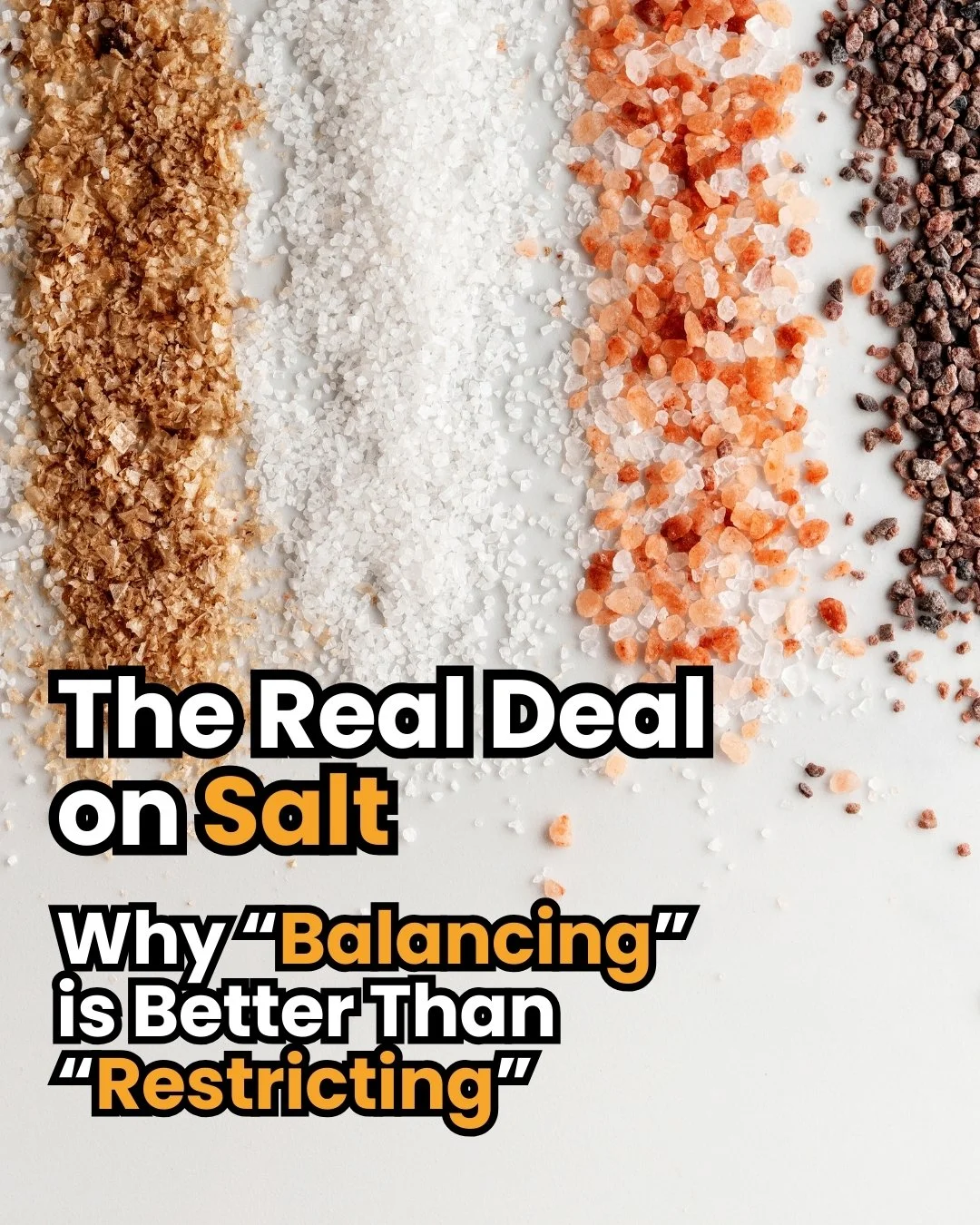
Salt, Science, and Midlife Health: What You Really Need to Know - PART 9
If you’re a man in midlife who’s been diligently cutting salt, only to feel tired, foggy, or flat in the gym, this article is for you. We’ll break down why salt is essential, how to choose the right kind, and why context matters far more than restriction. By the end, you’ll see how salt, used wisely, can actually fuel your energy, improve your workouts, and support long-term health.

Forget Low Salt: Why Men in Midlife Should Focus on Potassium and Magnesium - PART 8
We’ve touched on potassium and magnesium, but let’s drive home their roles in the salt and blood pressure story, because this is where conventional advice truly missed the mark. You shouldn’t think about sodium alone; consider the sodium-potassium ratio and overall mineral intake instead. These ratios may be more significant than the absolute amounts of sodium.

The Real Deal on Salt: Why “Balancing” is Better Than “Restricting” - PART 5
For many midlife men, a rigid 1500 mg limit could be unnecessarily low and make it hard to stay hydrated and energised.
Another issue is that focusing on a single number ignores context; getting 3,000 mg of sodium from a fast-food burger meal full of trans fats is not the same as sprinkling 3,000 mg worth of mineral-rich sea salt on home-cooked veggies and lean protein.
The source and context matter, but current RDAs don’t distinguish these nuances.

Why Your Doctor Still Thinks Salt Is Bad (And Why He Might Be Wrong) - PART 4
With such compelling evidence piling up, one might wonder: Why do mainstream organisations still tell us to restrict salt so much? There are a few reasons the “salt is evil” narrative persists in conventional guidelines, despite the evolving science:

New Research Exposes the Salt Myth: What Science Really Says About Salt and Health - PART 3
If the historical evidence for salt reduction was flimsy, what does more recent, comprehensive research tell us? In the past 10–15 years, a wave of studies, from large epidemiological analyses to systematic reviews, has challenged the simplistic “salt = hypertension = heart disease” narrative.
These findings reveal a far more complex picture in which moderate salt intake is often harmless (or even beneficial), and both extremely high and extremely low intakes can be problematic. Let’s break down some key insights from modern research:
